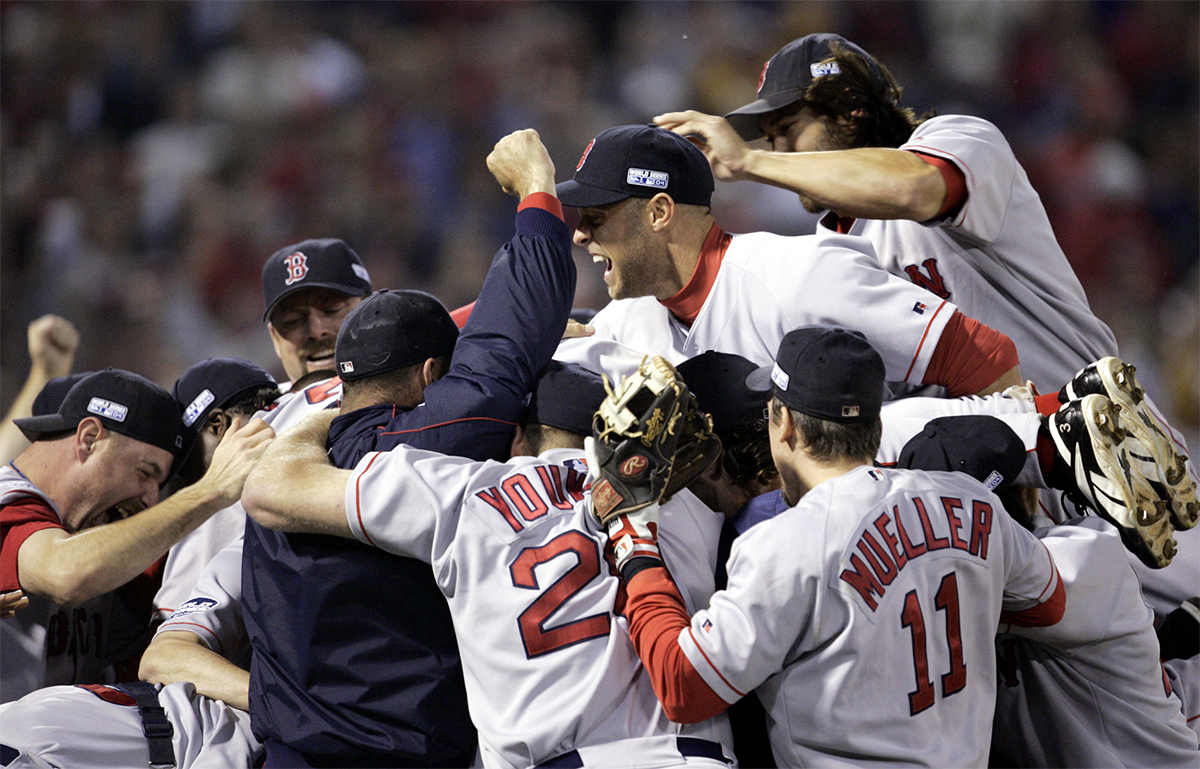
By Dr. Peter Hess |
Baseball gives hope. Teams can’t run out the clock with a big lead or take a knee to end the game…they have to get that last out. Until then, you can still believe that your team could rally and win…that no lead is too big.
This was illustrated in 2004, when the Red Sox were on the verge of being swept by the Yankees in the ALCS, having lost the third game at Fenway Park 19-8. In game four, the Red Sox were down one run going into the last of the ninth, with the bottom third of the Sox line-up facing Mariano Rivera, the best relief pitcher in the history of the game. Yet, a walk to Kevin Millar, who was promptly replaced by Dave Roberts as a pinch runner. Roberts steals second by an eyelash. Bill Mueller singles up the middle and Roberts scores the tying run. The game went into extra innings and the Sox prevailed. The Sox then won the next three games, the final two at Yankee Stadium. Then the Sox swept the Cardinals in the World Series. Highly improbable, but not impossible.
In baseball, as in life, you can do everything right, but end up with naught. You can hit the ball on the nose, but as a hard liner right at the shortstop or as a deep gapper caught by centerfielder in a brilliant play. Or you can get lucky, get fooled on a pitch, check your swing, and get a single on a feeble grounder to the right off the mound. Or chance can intervene with a bad hop on a double play ball to Yankees shortstop Tony Kubek that turns Game 7 of the 1960 World Series to the Pirates.
For many years, I coached Little League baseball…much to the discomfort of my two sons. It’s not the great plays of the good athletes that I remember so much as the rarer good plays of the non-athletes. Like with Jonathan, a pudgy boy on my first Little League team (full disclosure: we were 2-14), who was afraid to swing the bat in games. There were others on the team also reluctant to swing. Finally, right before the next game I told the team that anyone who went down looking at three strikes would be taken out of the game. The idea was to hit the ball; it didn’t matter if you struck out, but at least go down swinging. Well Jonathan literally hadn’t swung the bat all season, and he’s ‘worked’ the count to 3-0. I give him the take sign since he hadn’t been on base all season either. The next pitch was high and outside…way out of the strike zone…and Jonathan goes after it, tomahawking a double to right center field. I’ll never forget Jonathan standing on second base… beaming. He never got another hit that season, but he did swing, and he did have his moment of glory and a lifetime memory.
To describe ‘life in six words,’ three examples from baseball reflect different life paths:
Singled, stole second, scored on error. That is, achievement, taking chances, and benefitting from good fortune.
Hit by pitch, picked off first. That is, a life of tough knocks, but in the game.
Born on third, still didn’t score. That is, privileged but still didn’t succeed.
Peter N. Hess, professor of economics emeritus at Davidson College, played baseball through college and later coached youth baseball for many years. His goals as a youth coach were for the players: to have good experiences by learning the game and developing their skills, exhibiting good sportsmanship and working together as a team, and, if possible, winning some games.